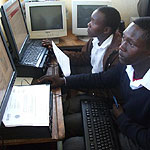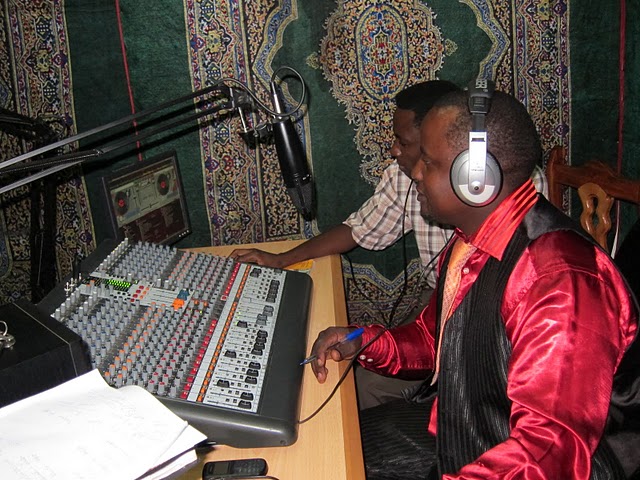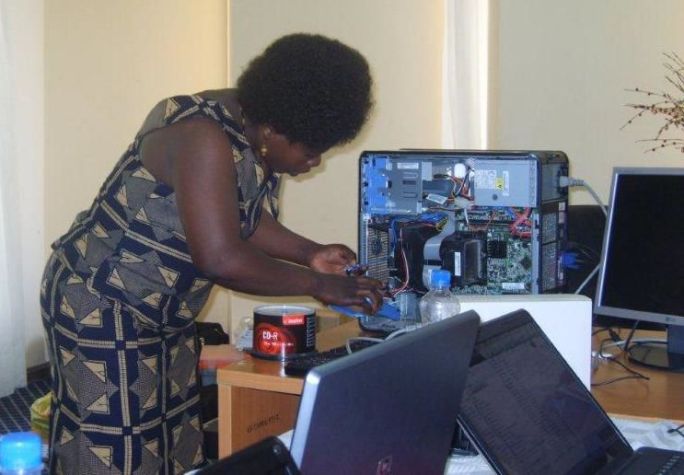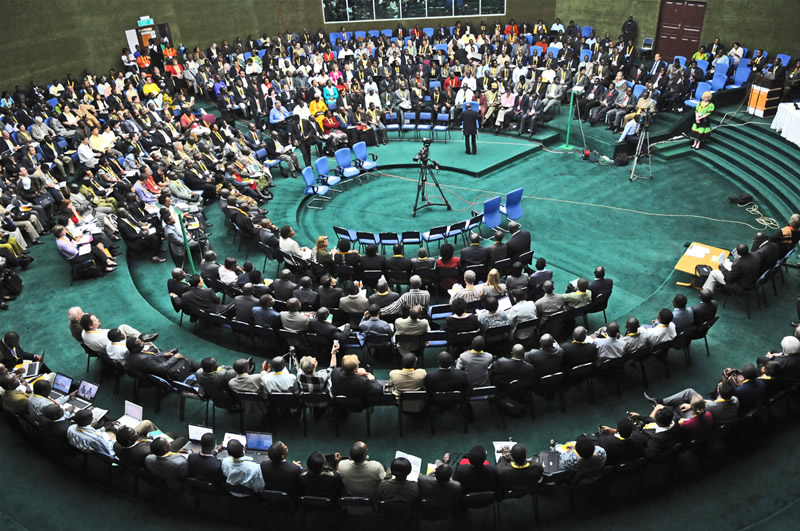A great way to find out what does and does not work in eLearning is to listen to those that have been conducting longitudinal research and developing empirical evidence over many years. Researchers at the University of Cape Town, Associate Professor Laura Czerniewicz, director of the Centre for Educational Technology and Cheryl Brown, an award-winning lecturer at the Centre and their team have done […]
Author: claire
ICTs activate women in Burkina Faso
The busy community centres set up by the Réseau Femmes en Action (Women in Action) network in Burkina Faso offer Internet cafés, libraries, reading areas and meeting rooms. Françoise Bibiane Yoda, Executive Director of the Réseau Femmes en Action network explained how they work.
A text message saves a life in remote Malawi
Piers Bocock saw how the K4Health SMS project saved a dying mother’s life in central Malawi.
eLearning for the airwaves – skills for agricultural broadcasting
Small-scale farmers account for the majority of the working population in many sub-Saharan countries. In order to increase productivity and improve their lives, these farmers need practical information about low-cost farming methods. The sector also urgently needs more young people, with many turning their backs on this type of work.
NATO training chief at eLearning Africa
Lieutenant General Karlheinz Viereck, who is responsible for Joint Force Training at NATO, will be a keynote speaker at eLA 2011. NATO is the world’s biggest military alliance, and its member states spend billions of dollars every year on training, as well as on research and development in the fields of information technology and education. Lt Gen Viereck, who was once nicknamed “the laptop […]
Delivering video by mobile phone to classrooms in Tanzania
A ground-breaking project, Bridgeit, locally known as Elimu kwa Teknolojia or Education through Technology, is now operating for nearly 80,000 pupils in 150 Tanzanian schools. The programme enables a teacher to download videos on math, science or HIV/AIDS to mobile phones which are connected to a TV set in the classroom. Students who have watched the videos achieve improved test results.
How social networks train social skills
Allan Kakinda, 23, graduated from Makerere University, Uganda, in 2010. Interested in digital technologies from an early age, he now works with the International Education and Resource Network (iEARN). iEARN is a platform enabling students and teachers to collaborate online on projects dealing with real-life problems worldwide. Allan spoke to eLA about his work and explained why he thinks technologies can make a […]
How ICTs nurture talent – a very personal story from Zambia
Information and Communication Technology unlocks hidden talents. That is what happened to eLearning Africa participant Lois Mvula. She used to be a cleaner at a teachers’ college. Now she leads an IT technical team at the college. Here is her very personal story.
Is the OER movement flawed? Join the debate!
Open Educational Resources (OER) are a very popular issue at eLearning Africa. However, do they really play such a positive role in higher education and at other educational institutions across Africa? The eLearning Africa 2011 Debate, traditionally a very lively, parliamentary-style discussion, will address the following motion: “This house believes that the OER movement is fundamentally flawed because it is based on the false […]
VLEs enhance education
Pearson Fronter specialises in simple tools for secure online education and collaboration in specific virtual ‘rooms’. Its Virtual Learning Environment (VLE) gives students, teachers and parents access to communications, assignment submission, planning and shared resources. Here, eLearning Africa shows how introducing this platform in a school in the United Arab Emirates is helping to meet the educational needs of the children and connect the […]










